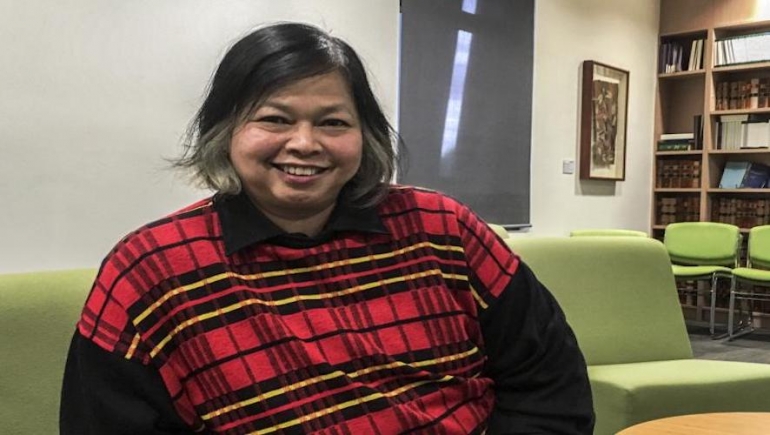Debbie Stothard, secretary-general of the International Federation for Human Rights, the oldest human rights group in the world, says there is room for Australia to improve its efforts in engaging civil society and listening to victims of human rights violations.
An expert in business and human rights as well as atrocity prevention, Ms Stothard took questions on a range of human rights issues in Southeast Asia at UNSW Sydney on August 6.
“Australia is not that well known for supporting and engaging with civil society on human rights issues on the ground so we need to build up some of those formal connections and the sense of solidarity,” she said.
“The Adani issue, the question of how asylum seekers are treated, and the human rights of Indigenous people really undermines Australia’s credibility when it comes to human rights issues.
“There are still Indigenous deaths in custody. This was one of the hot button issues back in 1988 at our rallies during Australia’s Bicentenary, and we are still dealing with this 30 years later.
“People say, we have to clean up our own house first before talking about human rights overseas. But solidarity is a two-way process. We can do both human rights domestically and internationally.
“It’s not a question of whether we can, but whether we really want to.”
What is the relationship between ethnic politics and human rights in Southeast Asia?
Ms Stothard said her home country of Malaysia was one case where economic, social and political rights were clearly delineated by ethnic identity.
“For many years in Malaysia, even your access to education at tertiary level was on an ethnic-based quota,” she said.
“Because I was not Malay, Chinese or Indian, I was basically ‘miscellaneous’. It was a way of putting people in a situation where they felt they had to compete.”
The same tactics, creating of an “other,” are being used in Myanmar against minority groups including the Rohingya people, Ms Stothard said, while in China and Thailand, people who identify as belonging to a minority group were being supressed by a “generic brand” of national identity.
“How do we harness identity politics to ensure that minorities’ rights are acknowledged and respected and defended, while preventing the exploitation of these cleavages to justify the segregation of people?”
Is there any progress on the abolition of the death penalty in Southeast Asia?
After a long campaign for ASEAN states to put a moratorium on the death penalty with a view to abolition, there had been some serious U-turns, Ms Stothard said.
The Philippines – once celebrated for being progressive on this issue – was considering bringing back the death penalty.
Thailand was again executing prisoners and Myanmar, where capital punishment had not been used for a long time, was now considering using the death penalty for child rape.
“We are facing a U-turn on previous commitments and gains made to remove the death penalty from the region,” Ms Stothard said.
What do you see as the most effective advocacy tools in business and human rights?
With no national action plan on business and human rights, Australia is lagging behind ASEAN states like Thailand, Malaysia and Indonesia, Ms Stothard said.
“A Modern Slavery Act is one aspect of a national action plan. It’s only a halfway point. Australia needs to have a plan that makes business comply with extraterritorial human rights obligations.”
Australian companies were exploring for oil and gas off the coast of Rakhine state, where atrocities “bear the hallmarks of genocide” according to the UN special rapporteur.
“Australia is fully aware that it’s a party to the Rome Statute so why isn’t it incorporating guidance to Australian companies to make sure they don’t contribute to, or benefit from, serious international crimes?” asked Ms Stothard.
Could you give us an update on the status of journalists in the region?
There remain serious threats to journalists and bloggers in Southeast Asia, as demonstrated by the arrest of Reuters journalists Kyaw Soe Oo and Wa Lone, who are facing up to 14 years jail after exposing a massacre in Rakhine state.
More recently, Bangladeshi photographer Shahidul Alam has been arrested after criticising the government’s handling of protests.
Ms Stothard said: “There is also the question of how to encourage media users and social media users to differentiate between what is fake news and what is fact, and importantly, not falling into the trap of getting whipped up into violence and hate speech by politicians.”
